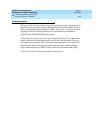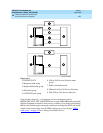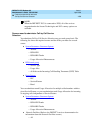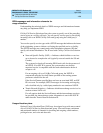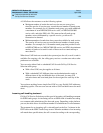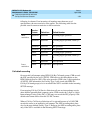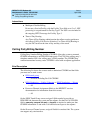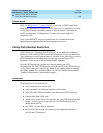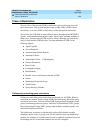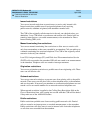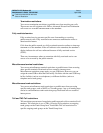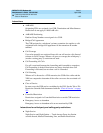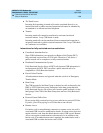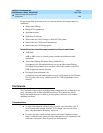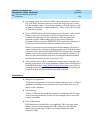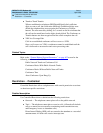
DEFINITY ECS Release 8.2
Administrator’s Guide
555-233-506
Issue 1
April 2000
Features and technical reference
1304Class of Restriction
20
Class of Restriction
You use Class of Restriction (COR) to define the types of calls your users can
place and receive. Your system may have only a single COR, a COR with no
restrictions, or as many CORs as necessary to effect the desired restrictions.
You will see the COR field in many different places throughout the DEFINITY
System - when administering phones, trunks, agent logins, and data modules, to
name a few. You must enter a COR on these screens, although you control the
level of restriction the COR provides. You must administer a COR for the
following objects:
■ Agent LoginID
■ Access Endpoint
■ Announcements/Audio Sources
■ Attendant Console
■ Authorization Code — COR Mapping
■ Console-Parameters
■ Hunt Groups
■ Loudspeaker Paging
■ Data Modules
■ Remote Access (each barrier code has a COR)
■ Station
■ Terminating Extension Group
■ Trunk Groups
■ Vector Directory Number
Called-party and calling-party restrictions
Called-party and calling-party restrictions are the basis for all CORs. When no
restrictions are needed, assign a single COR with called-party and calling-party
restrictions set to none. You can use this COR for unrestricted telephones, trunk
groups, terminating extension groups, Uniform Call Distribution (UCD) groups,
Direct Department Calling (DDC) groups, data modules, attendant groups, and
individual attendant extensions.
The called-party restriction is checked only at the called terminal, module,
attendant console, zone, or group, even if a call redirects from one telephone to
another. For example, if a called terminal (with no terminal restrictions) has Call
Forwarding active to a restricted terminal, the call still completes.



